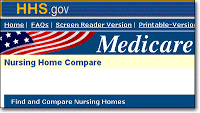In a recent piece for TechCrunch, Sarah Lacy highlights the views of Peter Thiel—the PayPal co-founder, hedge fund manager and venture capitalist—on higher education in America. According to Lacy, Thiel believes that America is under the spell of a bubble in higher education. “A true bubble is when something is overvalued and intensely believed,” Thiel explained. “Education may be the only thing people still believe in in the United States. To question education is really dangerous. It is the absolute taboo.”
OK fine, but in Lacy’s article, Thiel never actually questions education. What he questions is its price. Thiel says a college education costs too much. He also says college education is exclusionary. People “pretend that if they could just go to Harvard, they’d be fine,” he says. “Maybe that’s not true.”
Maybe it’s a good thing Thiel didn’t question a college education per se, since for all its inefficiencies and uneven quality, it’s clearly a good thing to have from an economic standpoint. The median income for US adults with a bachelor’s degree is $53,000 per year. That number is $33,000 for those who have only a high school diploma, and lower still for people who didn’t graduate high school. Over the course of a lifetime, an American citizen who has a college degree will earn nearly $1 million more than one who doesn’t. And unemployment rates for people without college degrees are more than twice as high as the rates among those who have such degrees.
As for America’s competitiveness, education policy experts from the left and the right agree that the US needs a more educated workforce if it is to compete successfully with China, the EU nations and rising Asian nations, all of which place enormous importance on education. Many of these countries have already passed the US on several measures of national competitiveness that would be of interest to Thiel, like per capita economic performance, entrepreneurship, human capital and innovation capacity.
Well then, what about Mark Zuckerberg, Bill Gates and many other entrepreneurs who achieved success without a college degree?
It turns out that they have something in common with Thiel. They grew up in a comfortable, middle- to upper-middle-class environment. Thus, in all likelihood, they had caring, educated parents who made sure they never had to worry about where their next meal would come from or fear for their personal safety. They were educated at the dinner table, and attended top-flight elementary and high schools. Thiel himself attended Stanford and Stanford Law School.
Among the relatively small number of people in this country who grew up in environments like this, a few particularly talented kids can and do succeed as entrepreneurs (or in other career paths, for that matter) without a college degree.
For everybody else, the college degree remains the best ticket to success, especially from an intergenerational perspective. It’s just 2 generations from my dad, who grew up dirt poor and was the first in his family to go to college (CCNY), to my daughters, who received (and to their credit, took advantage of) the best possible education. I can say with absolute certainty that they are more capable, self-assured and prepared to make a difference in the world because of their college experience.
Theil’s other main points, that top-tier colleges like Harvard and Stanford are exclusionary (in the sense that they can’t accept all qualified candidates), and that the cost of most private colleges is too high, are spot-on, however. Thiel is right when he says that “no one pays a quarter of a million dollars just to read Chaucer.”
But Thiel’s solution to these problems, his so-called “20 Under 20” program is, remarkably, even more exclusionary and more expensive than the universities he impugns. Offered by the Thiel Foundation, the program picks from a pool of applicants the 20 kids who have the best ideas for a tech startup, and ‘pays’ them $100,000 to leave school and start a company instead. The lucky winners are also mentored by successful entrepreneurs in Thiel’s network.
Talk about exclusionary! The program received over 400 applications. This means its acceptance ratio is more than 20:1, a statistic that would bring a smile to even the dourest Ivy League admissions officer. What is more, most applications came from students already enrolled in top-tier schools, including nearly 20 from Thiel’s alma mater. These kids have to jump through 2 hoops, not just one! First, they have to get into Stanford, then they have to win a contest featuring the best of their entrepreneurial peers.
“Where are the smart inner-city kids let down by economic blight and a failing education system of a city like Detroit?” Lacy zings.
Thiel dodges the question completely. “We’re saying maybe people at Harvard need to be doing something else. We have to reset what the bar is at the top.”
Other than that, Thiel’s solution is too expensive, it can’t scale, and it provides no assurances about the quality of support that its winners will receive. With respect to costs, the $100,000 2-year grant is actually more money than what is required to send a kid to college (I assume Thiel doesn’t want his grants used for room and board). And that’s not even counting the payment-in-kind provided by Thiel’s experienced mentor-friends.
With respect to the problems of scale and quality assurance, Thiel’s mentors won’t have the bandwidth to handle more than a few ‘apprentices’ at a time. And who is to say that they will all provide timely, outstanding support? It’s a bit of a crap-shoot, really.
In summary, I agree with Thiel that the traditional paradigm for US education, from pre-school right through college, can and should be made more efficient and less expensive for both taxpayers and parents. But I don’t agree with Thiel’s plan to get us there.
Maybe what’s needed is more experimentation with scalable, less expensive models of education. On-line education is growing like crazy. How effective is it? How can we leverage the technology our children have grown up with–social networking, smart phones, video games–to improve and democratize the educational process? I suspect many people have already progressed these ideas. I would love to get some good references and links so I can learn more.








